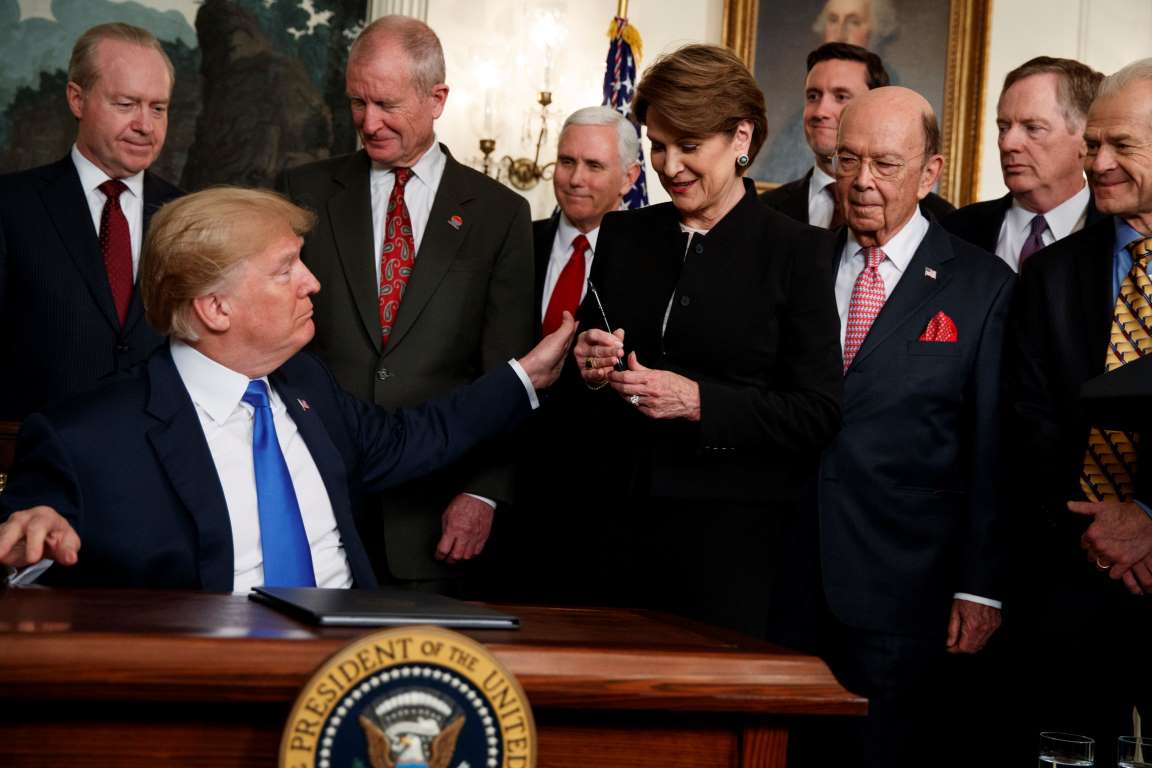Media Report

- CNN reports: "Beijing has renewed a warning that it will retaliate if President Donald Trump goes through with plans to slap new tariffs on Chinese goods worth billions of dollars. 'China will certainly take all necessary measures to resolutely defend its legitimate rights and interests,' if the United States imposes new restrictions, the Ministry of Commerce said in a statement on Thursday. Trump is widely expected to announce new tariffs on $60 billion worth of Chinese exports to the United States later in the day. That's a little more than 10% of all Chinese goods sent to the United States in 2017."
- CNBC reports: "The two largest economies in the world are dominating global research and development in the artificial intelligence field, but China is likely to emerge the winner, according to Credit Suisse. That prediction was based largely on one reason: China lacks "serious law" about data protection, which gives companies pretty much free rein to develop their technology, said Dong Tao, vice chairman for Greater China at Credit Suisse Private Banking Asia Pacific. At present, China lags U.S. in every area of AI development — hardware, research and algorithm, and industry commercialization — except big data."
- Foreign Policy reports: "As a foreigner in China, you get used to hearing the retort "You don't know China!" spat at you by locals. It's usually a knee-jerk reaction to some uncomfortable modern issue... But it's also true. We don't know China. Nor, however, do the Chinese — not even the government. We don't know China because, in ways that have generally not been acknowledged, virtually every piece of information issued from or about the country is unreliable, partial, or distorted. The sheer scale of the country, mixed with a regime of ever-growing censorship and a pervasive paranoia about sharing information, has crippled our ability to know China. Official data is repeatedly smoothed for both propaganda purposes and individual career ambitions."
Calendar
- 2018-03-21 How a Trump trade war with China could whack the U.S.
- 2018-03-20 China’s Leaders Smooth Trade Tensions but Talk Tough on Taiwan
- 2018-03-19 Xi Taps Harvard-Educated Adviser to Tighten Grip on China’s Economy
- 2018-03-18 Forty-five US trade groups urge Trump to avoid tariffs against China
- 2018-03-16 Trump Readies Sweeping Tariffs and Investment Restrictions on China
- 2018-03-15 Boeing would be on the front lines of a trade war with China
- 2018-03-14 Chinese investment in the U.S. could grind to a halt
- 2018-03-13 China sets up new foreign aid agency to better project influence abroad
- 2018-03-12 South Korea moves to ease Chinese jitters over US-North Korea talks
- 2018-03-11 US protectionism could set off a digital trade war
News
- CNN We will hit back if US announces new tariffs
- CNBC China will win the A.I. race, according to Credit Suisse
- The Wall Street Journal China Ratchets Up Rhetoric, Vowing Action Against U.S. Tariffs
- Bloomberg Tariffs on China Do More Harm Than Good, Business Council Says
- The New York Times In Taiwan, U.S. Official Says Commitment 'Has Never Been Stronger'
- Reuters Trump set for China tariff announcement on Thursday, trade war fears grow
- The Washington Post Chinese state media now with more Communist Party propaganda
- CNBC China poised to open markets 'beyond expectations' as tough US tariffs loom, envoy says
- The New York Times Facebook, Texas, China: Your Thursday Briefing
- CNBC White House will announce tariffs cracking down on Chinese theft of intellectual property
- Reuters China's oil futures: frazzle or dazzle for foreign traders?
- CNBC Best Buy cuts ties with China's Huawei, source says
Commentary
- Foreign Policy Nobody Knows Anything About China
- CFR China's Heavy Hand in Africa
- National Public Radio American Business Leaders In China Concerned About Trump's Trade Actions
- NPR China Acknowledges Sale Of Advanced Missile Technology To Pakistan
- Market Watch China talks tough on trade, vows action against U.S. tariffs
- CNN Trump sticks two thumbs in China's eye
- War On The Rocks How The U.S.-China Intellectual Property Dispute Could Play Out
- Fox News Trump's tariffs on China will benefit America and are long overdue
